The best people to ask about the benefits of MapMechanics’ market-leading suite of Routing and Scheduling solutions are the company’s clients.
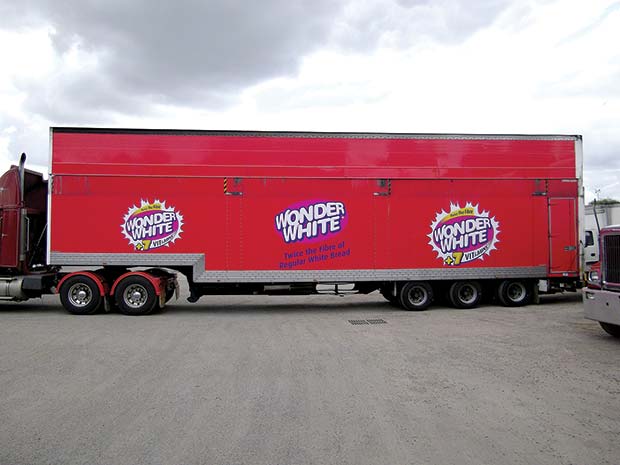
The long list of users includes:
Nightfreight, the national express delivery and supply-chain specialist, UniChem, the pharmaceutical wholesaler, now part of Alliance Boots and GLASSOLUTIONS Saint-Gobain, the UK’s largest processor, distributor, installer and repairer of glass and glass systems. Smaller specialist firms are equally able to make significant savings with TruckStops, for example, PDQ Transport which specialises in delivering plants to garden centres nationwide and The HIPPOBAG™ national domestic and commercial waste collection and recycling service.
MapMechanics’ wide range of solutions offers a host of business benefits. Clients cite:
• Reducing transport costs
• Visualising ‘What if’ scenarios
• Saving time in travel and planning
• Gaining capacity to take on extra shifts
• Reducing carbon emissions
• Improving service levels
Everybody wins – reduced costs and sustainable earnings for contractors: Goodman Fielder
Goodman Fielder, Australasia’s leading listed food company, has made far-reaching improvements to the way it distributes bakery products throughout Australia by introducing TruckStops routing and scheduling from MapMechanics. Goodman Fielder delivers to 14,000 outlets from a nationwide network of depots every day. It manufactures in multiple locations, and supports an intricate network of depot and inter-factory trunking operations and local deliveries.
Goodman Fielder’s national supply chain business analyst, Paul March, describes implementing TruckStops as “a quantum leap” in helping to control costs, adding: “We’ve been able to optimise the number of trucks, we’ve reduced mileage and fuel costs, and we’ve provided more sustainable earnings for the independent contractors who do our deliveries, reinforcing their commitment to our business. Everybody wins.”
Paul points out that the optimum route mix is based not just on journey time, but also on outlet size and type, concession rates and other factors. “Minimising cost doesn’t necessarily equate with minimising geographical spread.
“We were able to set up TruckStops to weight all the main factors, even merchandising times, and come up with an overall best solution.”
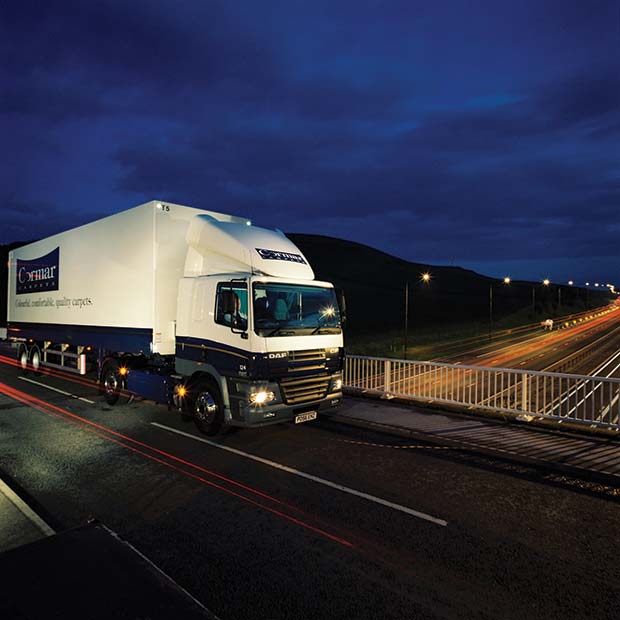
Identifying new sites and making significant savings: Micronclean Fenland
By harnessing the resources of MapMechanics’ TruckStops VRS routing and scheduling optimisation system, UK workwear rental and cleaning specialist Micronclean from Fenland Laundries Ltd has achieved major efficiency gains in its collection and delivery system. Transport & Logistics manager, James Bell explains:
“Not only could we see opportunities to reduce the existing vehicle fleet, I also realised we could save by opening a new outbase to serve south-east England.” Modelling with TruckStops indicated that a location just north of London would be ideal, so the company set up a base at Letchworth in Hertfordshire.
“Altogether we were able to save five vehicles from our twenty-five strong fleet,” James Bell reports.
TruckStops VRS at Micronclean is integrated with the Masternaut real-time vehicle tracking system and so James predicts further efficiency gains.
“Currently we re-optimise our fixed routes with TruckStops every six months, but with the much more immediate and detailed feedback on actual performance from Masternaut, we expect to be able to re-optimise every two to three months. It means a much quicker route to savings.”
Worked out of the box, integrated easily, increased drops per load and improved service levels: Cormar Carpets
Cormar Carpets manufactures just outside Bury, and delivers via a network of regional bases. Logistics contractor Wincanton manages the company’s fleet and provides the depot infrastructure. In the past, Cormar allocated each customer to the nearest logical depot and scheduled deliveries manually – a process which logistics manager Craig Marshall describes as “slow and inexact” – and delivery volumes were rising steadily. So the company researched the market for a routing and scheduling solution, and found that TruckStops matched all its criteria:
“It worked out of the box, yet was powerful and easy to integrate with our existing back-office computer system,” Craig Marshall says. “Also it was sensibly priced. Other major suppliers didn’t seem to be so interested in working with a medium-sized business like ours.
“We have been able to increase the average number of drops per load from eight or nine up to thirteen, yet improve service levels at the same time.” He adds: “We are now achieving at least 98 per cent on-time delivery performance.”
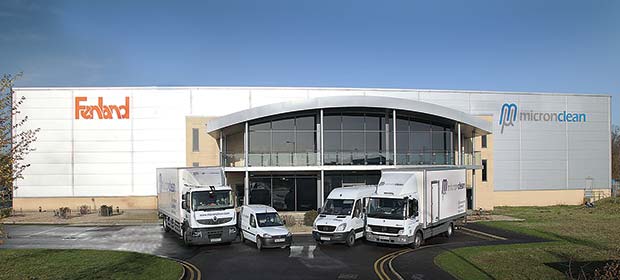
Specific delivery time windows
A further benefit of TruckStops, says Craig Marshall, is its ability to respect delivery time windows. “Many of our smaller retailers can only accept deliveries at specific times. The implementation forced us to look carefully at our database, and ensure that we held a record of the acceptable delivery times for all these customers. TruckStops now creates journeys that take them into account.”
Pays for itself time and time again: PDQ Transport
You can benefit from using the TruckStops vehicle routing and scheduling optimisation system from MapMechanics, even if your company runs no vehicles of its own at all. That’s the verdict of Cheshire-based PDQ Transport, which specialises in delivering plants to garden centres nationwide.
“TruckStops is absolutely essential to our operation,” says proprietor Peter Rawlinson. “I simply couldn’t run the business without it.”
Having been impressed with TruckStops in previous employment, Peter Rawlinson invested in the TruckStops solution at the outset when he launched PDQ years ago. He says “The system has paid for itself time and time again. If anything, it’s even more important to us now than it was when we started up.”
PDQ buys plants from specialist growers in the UK and overseas. They are shipped to its base near Chelford in Cheshire, and then PDQ consolidates them and delivers them onwards to customers around the UK. Turnaround time at the depot is usually no more than a day or two at the most.
PDQ uses a few regular contractors in its own area, and supplements their resources with vehicles from hauliers in distant locations, usually reloading them after they have made deliveries in the area.
“With the vehicles belonging to our regular local contractors, TruckStops actually schedules the routes on a stop-by-stop basis in the classic way,” Peter Rawlinson says. “It’s just like scheduling a fleet of our own.”
When it comes to vehicles belonging to distant hauliers, TruckStops is used in a different way. “You don’t have to dictate when and how these vehicles actually make the deliveries,” Peter says. “TruckStops just works out which vehicles to load with which consignments. Then it’s up to the operators to decide how to do the delivering.”
TruckStops is ideal for planning outsourced operations in this way, since it has an inherent ability to handle multi-depot scheduling and third-party transport movements, and to plan movements where a vehicle starts somewhere other than at its home base. Where a company uses both its own and outsourced vehicles, TruckStops can even compare the costs of handling each consignment in-house with contracting it out.
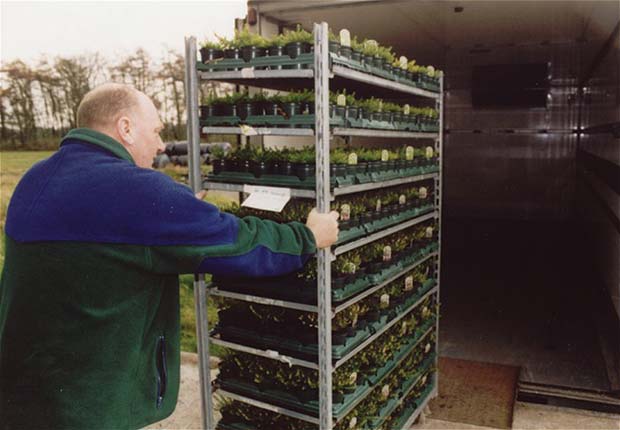
Examples of making efficient use of assets: Reducing cost of bought-in services: D?r Cymru Welsh Water
A wide-ranging transport resource management project mounted jointly by VSc Solutions and MapMechanics for Dwr Cymru Welsh Water includes TruckStops vehicle routing and scheduling. It is producing major savings and efficiency gains in the planning and scheduling of sludge movements between processing plants across Wales.
Sludge (partly-treated waste) has to be collected regularly from some 880 sites by specialised bulk tanker vehicles and transported to a number of larger sites, where further processing is undertaken.
The company’s core fleet is based at 23 strategic locations within their large operating area, and historically it ran on pre-determined routes known as “milk rounds” that reflected the typical collection pattern required by each treatment plant. Rounds were planned in advance for a whole year’s operations, with visits ranging in frequency from twice a day to once every few months.
However, these fixed journeys did not always reflect actual operating requirements. For instance, even if there was not enough sludge at a site to make up a full load, the driver would still make the collection, running partly-loaded and compromising efficiency. “We have been able to reduce the cost of bought-in services significantly by using our own drivers more productively,” says Steve Farley, the organisation’s logistics manager. “We have reduced unnecessary collections from sites that need not be visited so frequently, and improved our vehicle fill rate significantly.”
There have been many other benefits, too. For instance, the organisation can identify delays at sites, and can calculate the cost to serve each site more accurately than ever before.
Welsh Water’s Dave Lewis (Waste Services Manager) sums up: “The system is doing exactly what we wanted it to. We are reducing the cost of bought-in services, monitoring our internal costs much more closely, improving our efficiency and productivity, enhancing the service we provide to our sites, and keeping a much closer check on the treatment process.”
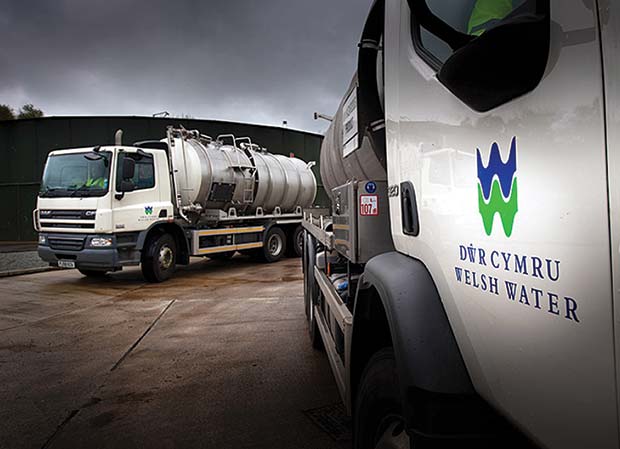
Realistic delivery time windows: Nightfreight
Nightfreight, the national express delivery and supply-chain specialist, has significantly enhanced the service offering of its Deliver2Home two-man home delivery service by introducing the TruckStops routing and scheduling optimisation system from MapMechanics.
More precise delivery time windows can now be offered to customers, and the planning and interaction can be handled on a national basis. The company has also improved efficiency by maximising the number of deliveries each vehicle can make per trip.
“Since introducing TruckStops routing and scheduling we’ve become increasingly confident about predicting delivery times,” says Deliver2Home director Paul Tyson. “Our recently-introduced three-hour delivery time window is really working well, and the accuracy is down to TruckStops.”
Nightfreight’s Deliver2Home service handles a wide range of products such as furniture, bathrooms and kitchens and fitness equipment. Customers include big national retailers such as John Lewis. Orders are placed either in stores or online, and then aggregated into delivery rounds. Consumers are kept informed about the expected day and time of the delivery throughout the process.
As orders are entered into the Nightfreight’s system, “virtual” delivery rounds are built up progressively for future dates, using the consumer’s postcode as the basis for each route. Data from TruckStops indicates initial fleet availability. Then on the afternoon before each set of deliveries, the data is fed to TruckStops to do the actual scheduling. TruckStops allocates the deliveries to individual vehicles, spreading the load across the fleet for maximum efficiency.
After that planners fine-tune the proposed routes manually. This is necessary to ensure there is enough capacity for next-day deliveries, which are still an unknown quantity when the virtual rounds are being created.
Finally the data is passed back to the Nightfreight system, and consumers are automatically sent a text or email to inform them of the expected delivery time window.
Paul Tyson points out that “in the past we offered deliveries between 7am and 1pm, or between 12.30pm and 6pm. Since introducing TruckStops, we have become confident enough to tell consumers to expect us between 9.30 and 12.30.”
He adds: “Actually TruckStops gives us even more precise estimates than that, but you always have to allow for delays. We add an hour before the expected delivery and two hours after.”
He points out that TruckStops will also respect delivery restrictions captured from Nightfreight’s own software. These might reflect areas with known delivery problems or other factors affecting the delivery process.
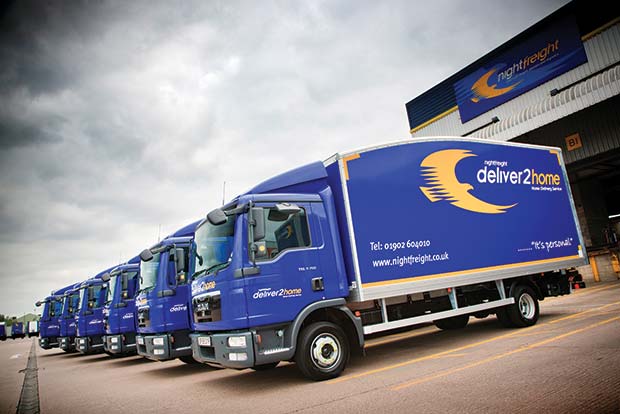
MapMechanics
Tel: 020 8568 7000




Comments are closed.